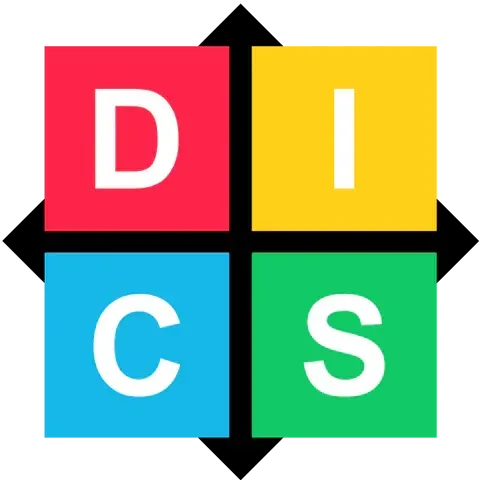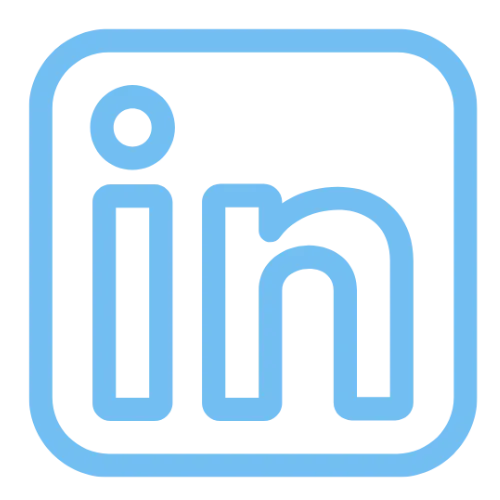
The DISC Assessment
Understanding DISC Personality Types: Your Guide to Better Workplace Communication and Success
In today's competitive professional landscape, understanding yourself and your colleagues is more crucial than ever. At CoreTactic, we've helped countless professionals and organizations harness the power of personality assessments to improve workplace dynamics and career satisfaction. Among these tools, the DISC personality assessment stands out as one of the most powerful and widely-used frameworks for understanding workplace behavior.
What Is DISC and Why Should You Care?
The DISC assessment isn't just another personality test – it's a comprehensive tool used by over a million individuals and organizations annually. What makes it particularly valuable is its focus on workplace behavior and professional relationships. Whether you're leading a team, seeking career advancement, or working to improve workplace communication, understanding DISC can be your secret weapon for success.
DISC stands for Drive, Influence, Support, and Clarity – four fundamental behavioral styles that shape how we interact, make decisions, and approach our work. The beauty of DISC lies in its simplicity: with just four basic styles, it's remarkably easy to grasp, yet powerful enough to transform workplace relationships and personal effectiveness.
The Science Behind DISC: How It Works
The DISC framework operates on two primary behavioral axes:
Active vs. Receptive: Your Pace and Approach
- Active: Think quick decisions, fast pace, and direct communication
- Receptive: More measured, thoughtful, and detail-oriented in approach
Skepticism vs. Agreeableness: Your Focus
- Skeptical: Task-oriented, focused on logic and results
- Agreeable: People-oriented, focused on relationships and cooperation
These two axes create a grid that defines the four DISC personality types, each bringing unique strengths to the workplace.
Deep Dive: The Four DISC Personality Types
1. Drive (Active + Skeptical)
Key Characteristics:
- Results-oriented and ambitious
- Competitive and decisive
- Natural leaders who enjoy challenges
- Focus on bottom-line results
Workplace Strengths:
- Excellent at taking initiative
- Strong decision-making abilities
- Thrives under pressure
- Natural problem-solver
2. Influence (Active + Agreeable)
Key Characteristics:
- Outgoing and enthusiastic
- Strong communicators
- Relationship-focused
- Natural networkers
Workplace Strengths:
- Excellent at building relationships
- Strong presentation skills
- Motivates and inspires others
- Creates positive work environments
3. Support (Receptive + Agreeable)
Key Characteristics:
- Patient and consistent
- Team-oriented
- Excellent listeners
- Harmony-focused
Workplace Strengths:
- Strong team players
- Reliable and dependable
- Creates stable work environments
- Excellent at maintaining relationships
4. Clarity (Receptive + Skeptical)
Key Characteristics:
- Detail-oriented and analytical
- Quality-focused
- Systematic approach
- Values accuracy
Workplace Strengths:
- Strong analytical skills
- Excellent at maintaining quality
- Thorough and precise
- Good at solving complex problems
Understanding Combination Types
While some people align strongly with one primary style, many exhibit a combination of two dominant styles. These combinations create unique behavioral patterns that add depth to the DISC framework. Here are the most common combinations:
Drive Combinations
- D/c (Drive + Clarity)
- Focused on efficient results
- High standards for self and others
- Analytical approach to leadership
- D/i (Drive + Influence)
- Charismatic leaders
- Results-oriented but people-aware
- Strong at building and leading teams
Influence Combinations
- I/d (Influence + Drive)
- Dynamic and energetic
- Strong at motivating others
- Balance of people and results focus
- I/s (Influence + Support)
- Excellent team builders
- Strong at creating harmony
- Natural mentors
Support Combinations
- S/c (Support + Clarity)
- Detail-oriented team players
- Reliable and systematic
- Strong at maintaining quality
- S/i (Support + Influence)
- People-focused collaborators
- Strong at building consensus
- Natural mediators
Clarity Combinations
- C/d (Clarity + Drive)
- Analytical problem-solvers
- Results-focused with attention to detail
- Strong at systematic improvements
- C/s (Clarity + Support)
- Methodical team players
- Strong at maintaining systems
- Detail-oriented supporters
Practical Applications in the Workplace
For Leaders and Managers
Understanding DISC can transform your leadership effectiveness by:
- Improving team communication
- Better delegating tasks based on natural strengths
- Managing conflicts more effectively
- Creating more balanced and effective teams
For Individual Contributors
Knowledge of your DISC profile can help you:
- Choose career paths that align with your natural strengths
- Improve workplace relationships
- Communicate more effectively with colleagues
- Understand and adapt to different management styles
For Teams
DISC provides:
- A common language for discussing work styles
- Better understanding of team dynamics
- Improved conflict resolution
- Enhanced collaboration
Important Considerations
What DISC Is Not
While DISC is a powerful tool, it's important to understand its limitations:
- It's not a measure of intelligence or ability
- It shouldn't be used as the sole criterion for hiring decisions
- It doesn't predict job success in specific roles
- It's not a fixed label but rather a framework for understanding behavioral tendencies
Can Your DISC Type Change?
While your core tendencies typically remain stable, your adapted style may shift based on:
- Different work environments
- Leadership roles
- Team dynamics
- Professional growth and experience
Making the Most of Your DISC Profile
1. Self-Awareness
- Understand your natural tendencies
- Recognize your strengths and potential blind spots
- Identify areas for growth and development
2. Communication
- Adapt your communication style when needed
- Recognize and respect others' preferences
- Build stronger professional relationships
3. Career Development
- Align roles with your natural strengths
- Develop complementary skills
- Make informed career decisions
The CoreTactic Approach
At CoreTactic, we believe that understanding your DISC profile is just the beginning. We help professionals and organizations:
- Apply DISC insights to real-world challenges
- Develop practical strategies for improvement
- Create sustainable behavioral change
- Build more effective teams and leaders
Taking Action
Ready to leverage the power of DISC in your professional life? Here are your next steps:
1. Take a validated DISC assessment
2. Review your results with a qualified professional
3. Create an action plan for applying insights
4. Regular review and adjustment of strategies
Conclusion
Understanding DISC personality types is more than just an interesting exercise – it's a powerful tool for professional growth and organizational success. Whether you're leading a team, building your career, or working to improve workplace relationships, DISC provides valuable insights and practical strategies for improvement.
Ready to transform your professional effectiveness with DISC? Contact CoreTactic today to learn how we can help you and your organization leverage the power of personality insights for greater success.
Remember: Your DISC type isn't a limitation – it's a foundation for understanding and growth. Use these insights to build on your natural strengths while developing complementary skills for complete professional effectiveness.








